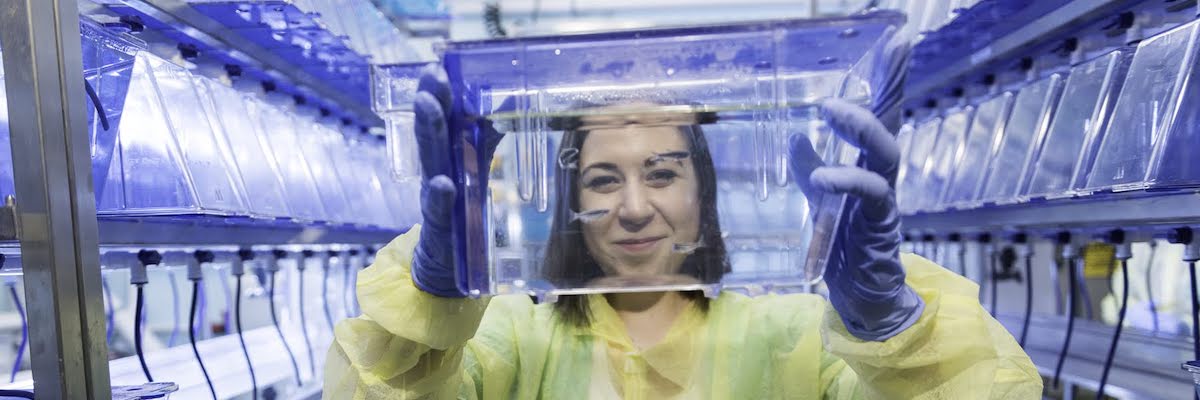The Organization
As an independent research organization, the Morgridge Institute for Research explores uncharted scientific territory to discover tomorrow’s cures. In affiliation with the University of Wisconsin-Madison, we support researchers who take a fearless approach to advancing human health in emerging fields such as virology, advanced multi-scale fluorescence and electron microscopy, metabolism and regenerative biology. Through public programming, we work to inspire scientific curiosity in everyday life.
Description
The Aquatics Research Center at the Morgridge Institute located in Madison, Wisconsin is an industry leading and progressive aquaculture facility in support of biomedical research. Technologies and research done here not only advances our understanding of human medicine but also advances the aquaculture and fish health industries. We believe, that to be a leader in the industry you must do “Fearless Science” and steadfastly push against the limits of what is possible.
The Aquatics Research Center is one of the largest biomedical aquaculture programs and uses some of the most advanced aquaculture technology available in the World. Biomedical aquaculture facilities provide lucrative career opportunities for aquatic science, marine biology, and aquaculture students at leading academic institutions. This internship will set the foundation to be a leader and provide experience that will set you apart from your peers for these highly sought after positions.
The internship will include weekly lectures and learning opportunities from experts in the biomedical research, fish health, and aquaculture fields. Interns will participate in lab meetings by participating research labs, sponsored presentations at the Morgridge Institute for Research and the University of Wisconsin – Madison and be immersed in a biomedical aquaculture workplace.
The internships will be offered during three terms throughout the year. Specific dates may change slightly each year, but each term will be up to 16 weeks in length. The Spring term will run from January to April. The Summer term will run from May to August. The Fall term will run from September to December. Exact start and end dates are negotiable to accommodate academic schedules. Applicants must provide a cover letter, indicating the term for which they are applying, and outlining their reasons for interest in the internship.
Learning objectives for the internship:
- Fish husbandry.
- Water chemistry testing and interpretation.
- Fish diseases and health management.
- Live diet culture and care.
- Recirculating aquaculture system operation and maintenance.
- Breeding fish, sorting embryos, and larviculture.
- Understanding regulations, policies, and inspections.
- Creating transgenic fish and genotyping.
- Fish models in biomedical research.
Compensation
Interns are responsible for arranging and covering any lodging or transportation needs independently. Interns will be paid $16 per hour and are expected to work up to 40 hours per week, including some weekend and holiday work. Paychecks are dispersed monthly. Interns are not eligible for benefits.
Requirements
Applicants must be majoring in marine biology, aquaculture, fisheries, aquatics sciences, lab animal science or other closely related curriculum. Applicants must have completed at minimum a sophomore year at an accredited college or university. Applicants must be currently enrolled in an undergraduate or graduate program or graduated with a degree within 6 months of the internship start date. All prospective interns must complete the application process. This role is contingent on applicants having or obtaining the appropriate authorization to work for us in the United States.
Necessary Skills
- Must be able to maintain accurate and detailed records.
- Must be able to work independently and in a group.
- Must be able to sustain cooperative working relationships.
- Must demonstrate reliable and predictable attendance.
Work Environment
- Work duties may include exposure to bacterial waste and aquaculture effluents.
- Work involves use of hazardous cleaning agents and detergents.
- Work is performed in a wet, often slippery, environment.
- Work requires safely lifting up to 50 lbs.
